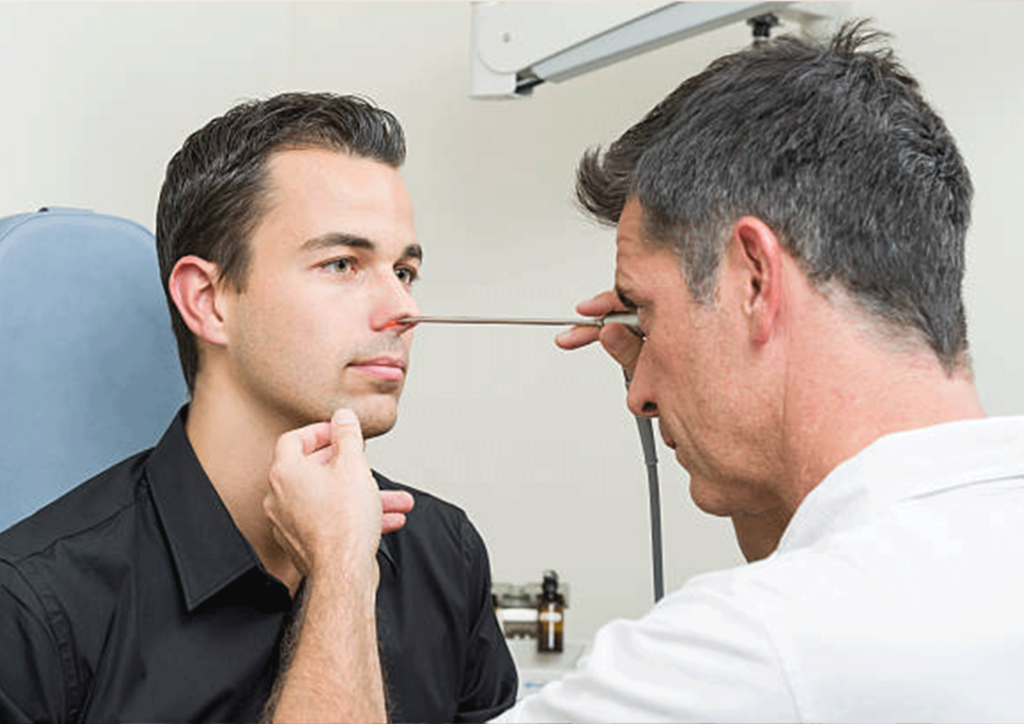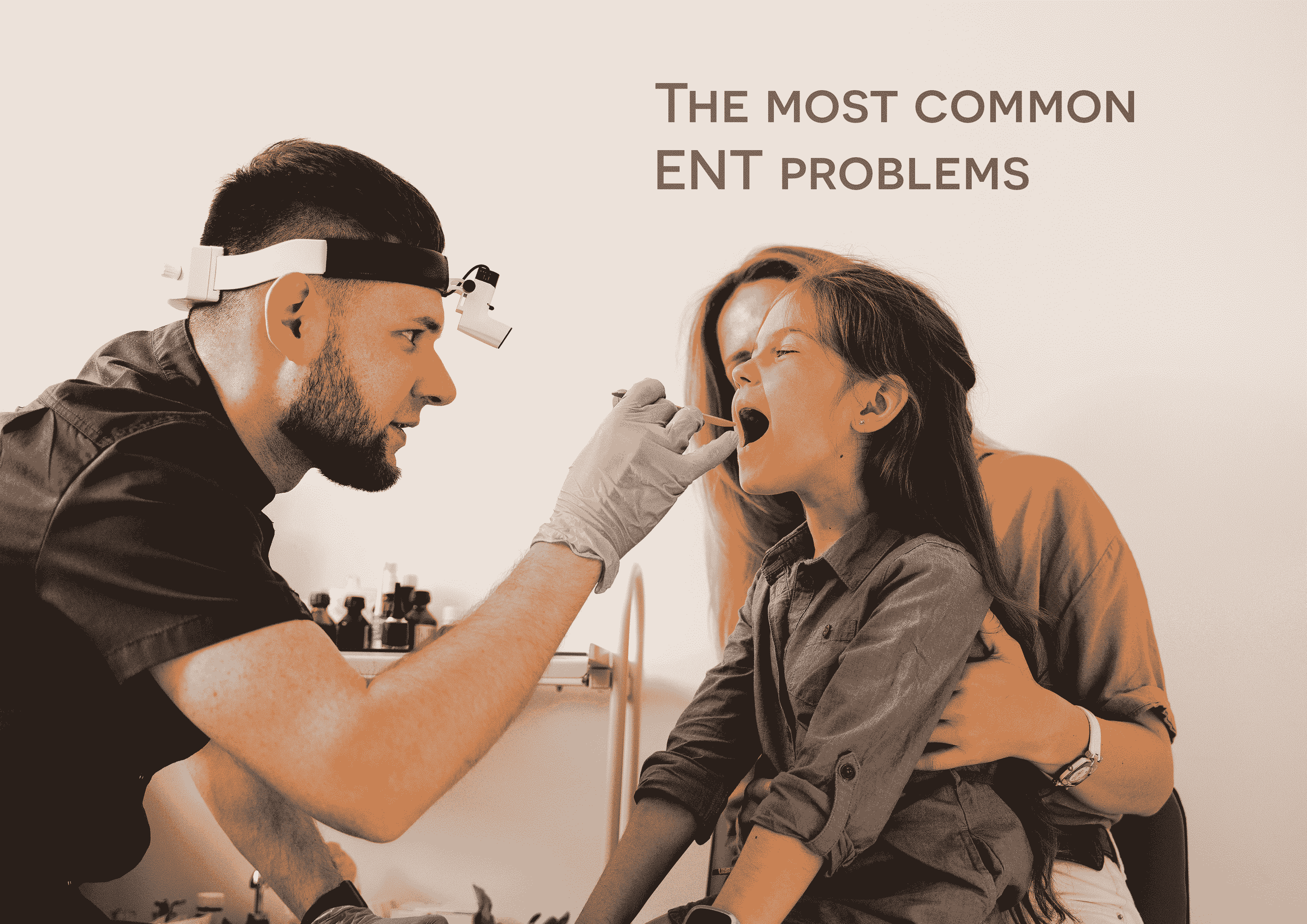Your ears, nose and throat are sensory organs that form part of your neck and face. And like
any other part of your body, they can suffer from a wide range of problems. There are
several ear, nose and throat – ENT problems people encounter. That’s why doctors often
group these conditions together. Starting from issues with sleeping and swallowing, these
problems can be detrimental to your overall health. Which is why it’s essential to get a
proper look from a good ENT doctor in the best ENT hospital in Thane, where you can
properly diagnose your health issue and get on the path to recovery. Let us discover the
most common problems in the ears, nose and throat ahead.

Common ENT Problems:
Common Ear Problems:
Ear infections:
Ear infections may occur if bacteria in the area multiply. It is often caused due to cold and
flu viruses which leads to inflammation and then pain. Typically, ear infections occur in the
outer ear or the middle ear, but they can also occur in the inner ear. Some symptoms that
point to an ear infection are the following:
Ear pain
Irritation
Sleeping issues
Fever
Spinning sensation
Nausea and vomiting
Hearing loss or difficulties:
Another problem you may experience in your ears can be hearing difficulties, such as
hearing loss or muffled hearing. Some people may be born with hearing difficulties, while
others usually face it as they age. You only get one set of ears in a lifetime and should care
of your ears properly.
Vertigo:
Vertigo is a sensation that makes your body feel like the environment around it is moving or
spinning. Vertigo can actually stem from an irritation or inflammation in the inner ear
caused due to acute labyrinthitis. If you have vertigo, you may also experience nausea,
vomiting, or ringing in the ears.
Common Nasal Problems:
Nosebleeds:
The nose contains many blood vessels and even minor trauma, such as falling over or
bumping the nose, can damage these blood vessels and cause a nosebleed. Some other
causes can include:
Blowing the nose vigorously
Picking the nose
Cracking and cuts in the nose due to hot, dry climates
Inhaling drugs, such as cocaine
Sinus Infections:
Another common problem people have with their nose are sinus infections. Sinuses are
hollow areas of the skull surrounding the eyes and nose. If germs get stuck in the sinuses
and multiply, it can lead to an infection. Basically, sinusitis is inflammation of the sinuses
caused by bacteria. Sinusitis may occur as a secondary infection after a common cold. It is
also very similar to a cold and has similar symptoms. Some ways of identifying a sinus
infection include the following:
Discoloured nasal discharge
Headaches
Congestion
Fatigue
Fever
Cough
Teeth pain
Allergies:
Many people have allergies, and there are many different types present. Some of these
allergies can also cause long-term problems in your ears, nose and throat. Sources for these
different allergies include pollen, food, medication, dust, pets and insects. People with
allergies can suffer from the following symptoms:
Itchy, runny or stuffy nose
Coughing
Congestion
Headache
Fever
Sneezing
Common Throat Problems:
Tonsillitis:
Inflammation that occurs in the throat may be a sign of tonsilitis. The tonsils are two soft,
oval shaped tissue organs located in the back of the throat. A bacterial infection may cause
the tonsils to inflame, which can cause the following symptoms:
Swollen tonsils
Difficulty swallowing
Sore throat
Swollen neck glands
Bad breath
Fever
Sleep Apnea:
Getting a healthy amount of sleep is very important for good health, and the same can be
said for the quality of sleep. Sleep apnea is a sleep disorder that occurs when a person
momentarily stops breathing while sleeping. It happens when a limited amount of air gets to
your lungs. Furthermore, similar stoppages can occur many times throughout the night. This
can be incredibly dangerous because the airway blockage can cause you to stop breathing in
your sleep. Some ways to detect sleep apnea include the following:
Chocking sounds during sleep
Snoring
Pauses in breathing
Headaches in the morning
Mood Issues
Insomnia
Memory loss
If you experience sleep apnea may need treatment from an ENT specialist.
If you notice any recurring issues that are similar to the ENT problems mentioned above,
you owe it to your health to get these problems diagnosed and treated as soon as possible.
You can do so by visiting an ENT specialist or the best ENT hospital in Thane.










